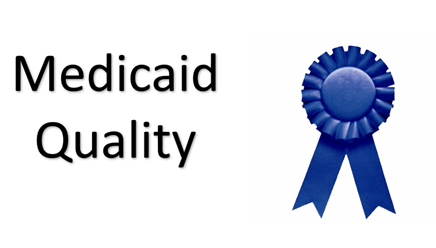Clipped from: https://www.governmentjobs.com/careers/washington/jobs/2931459/medicaid-program-manager-maps2-mpoi

Position Summary:
The Virtual Health Program Manager, reporting to the Director of Virtual Health, will assist in executing the virtual health roadmap for delivering local, regional, statewide and national virtual health services that achieve Carle Health strategic objectives as well as needs of our members and patients. The manager is be responsible for all aspects of executing virtual health projects (to include education materials & training) and managing the portfolio of projects; managing regional clients and their satisfaction of Carle Health virtual health program services; participating in the evaluation of new technology; assisting with project prioritization; and managing virtual health program specialist(s). In collaboration with their Director, scale the program in order to meet the growing demands of the organization. Understands clinical workflows in inpatient, outpatient, post-acute, regional and home-based environments, as well as technology innovations. Supports change management efforts to transform virtual healthcare for members, patients and families. Represents virtual health strategy to internal and external stakeholders, translating how virtual health can improve clinical and cost outcomes and member/patient and clinician experience.
Qualifications:
EDUCATIONAL REQUIREMENTS
Bachelor’s Degree in Related Field. Master’s Degree preferred.
CERTIFICATION & LICENSURE REQUIREMENTS
None, clinical licensure preferred.
EXPERIENCE REQUIREMENTS
A minimum of two to three (2-3) years of virtual health professional experience working in health care or technology sectors. Experience in a clinical setting as a direct patient care provider preferred. Experience with project management and associated tools and processes as well as experience being independently accountable for successfully meeting performance, leadership and project goals is preferred.
OTHER REQUIREMENTS
Ability to partner with operational, clinical, regional outreach and payer teams to effectively and efficiently deliver virtual health solutions; Recruit, lead, coach, and inspire direct reports. Dynamic, versatile and capable of exploring new concepts and impactful innovations; customer focus servant leader and first class problem solver. Ability to lead projects from concepts to completion; Exceptional written and oral communication and relationship building skills.
Essential Functions:
Clipped from: https://careers.peopleclick.com/careerscp/client_Carle/external/gateway/viewFromLink.html?jobPostId=17867&localeCode=en-us
Thank you for considering a career at Bon Secours Mercy Health!
DIRECTOR, VALUE BASED PROGRAMS | Work From Home/Remote
The position of Director, Value Based Programs will support the development and execution of BSMH value-based program strategy. The candidate will establish working relationships with managed care payers for assigned programs and efficiently balance demands of multiple accounts to ensuring timeliness, contract compliance and performance results. He or she will facilitate strategic growth discussions with payer and internal stakeholders to identify new payer partnerships, program opportunities and progression along the risk continuum. He or she will be the subject matter expert for program requirements, educating key stakeholders, providing guidance and recommendations during contract negotiations, identifying program issues / opportunities and evaluating program results.The director will be assigned a specific book of business to lead in all aspects.
Essential Functions
REQUIRED:
– Bachelors Degree in Business, Healthcare Management, Accounting, Finance or Related Field.
– Minimum of five years’ healthcare management experience involving complex delivery systems and organizations
– Effective negotiation and communication skills, plus the ability to utilize and interpret financial models and internal analyses. Knowledge of Managed Care, Finance, alternative payment methodologies, claim billing (CPT, HCPCS, ICD-10, DRG, etc. Self-starter, and proven ability to work well in a matrixed environment. Demonstrated project management skills with a successful track record. Proficiency with MS Office applications and web-based technologies. Excellent interpersonal communication with the ability to influence at all levels of the organization. Demonstrated ability to handle highly sensitive and confidential information in compliance with Health Insurance Portability and Accountability Act (HIPAA), and company confidentiality policies and procedures.
PREFERRED:
– Graduate Degree in Business, Healthcare Management, Accounting, Finance or Related Field.
– Experience evaluating, developing and/or negotiating value-based contracts Strong relationship building and influencing skills. Willingness to travel approximately 25% for face to face meetings. Excellent time management and prioritization skills. Highly collaborative team approach to work. Strong problem-solving skills, including the ability to systematically analyze problems, draw relevant conclusions and devise appropriate courses of action
Bon Secours Mercy Healthis an equal opportunity employer.
We’ll also reward your hard work with:
Scheduled Weekly Hours:
40
Work Shift:
Days
Department:
SS Revenue Management – Revenue Management
All applicants will receive consideration for employment without regard to race, color, national origin, religion, sex, sexual orientation, gender identity, age, genetic information, or protected veteran status, and will not be discriminated against on the basis of disability. If you’d like to view a copy of the affirmative action plan or policy statement for Mercy Health – Youngstown, Ohio or Bon Secours – Franklin, Virginia; Petersburg, Virginia; and Emporia, Virginia, which are Affirmative Action and Equal Opportunity Employers, please email recruitment@mercy.com. If you are an individual with a disability and would like to request a reasonable accommodation as part of the employment selection process, please contact The Talent Acquisition Team at recruitment@mercy.com.
Clipped from: https://careers.bsmhealth.org/job/-/-/28933/3092659952
MM Curator summary- Georgia has gone from reporting 75% of CMS program measures to only 25%.
The article below has been highlighted and summarized by our research team. It is provided here for member convenience as part of our Curator service.
ATLANTA — Nine years ago, Georgia reported ample data to the feds on the health care quality of its Medicaid and PeachCare programs.
In fact, a federal report at that time praised Georgia’s “proactive role in designing its data systems to support quality measurement.”
For seven more years, Georgia continued to be near the top of the data-reporting charts for what’s called the Core Set. It consistently submitted information about how its Medicaid program and its children’s health insurance, or CHIP program (known as PeachCare in Georgia), were delivering care.
No matter how well or poorly the state performed during those years, it submitted the data under the voluntary set-up.
But according to a Georgia Health News analysis, for the last two years, Georgia reported only a fraction of the information the federal Core Set requested.
Among the items not reported are rates of timely post-natal care, blood-sugar testing rates for diabetes, rates of patients using opioids at high doses, rates of hypertension control, and most mental health measures.
With 59 metrics, the Core Set aims to help states “monitor and improve the quality of health care” for Medicaid and CHIP plans, according to a 2018 press release from Seema Verma, administrator of the federal Centers for Medicare & Medicaid Services.
The Core Set is part of a push to improve transparency and accountability for states’ health insurance programs.
Medicaid and PeachCare cover about 2 million Georgians, mostly children. Those kids and some adults are part of a Georgia Families program that has been served by four insurance companies – Amerigroup, CareSource, Peach State and WellCare – which the government pays a total of $4 billion annually.
In 2011, the first year of the Core Set program, Georgia submitted the most performance measures of any state, 18 out of 24 requested.
For the latest data submission, GHN found that the state reported only eight of the 33 performance measures requested for adult measures, and just 13 of the 25 children’s measures.
When asked about the change in approach to reporting, Georgia’s Department of Community Health said the federal methodology was not sound because each state’s reporting method could vary.
States may use different methods in preparing the data, a weakness that the Core Set’s own documents acknowledge.
“In 2018, DCH reviewed the existing set of measures and determined that we needed a method that would allow us to benchmark ourselves to other Medicaid plans across the nation,” DCH Press Secretary Fiona Roberts said via email. “It was imperative that the benchmark was based on measures that were uniformly defined and populated for all Medicaid plans.”
Neighboring Southeastern states such as Alabama, South Carolina and Tennessee continue to lead in reporting the Core Set, while Georgia is now at the bottom of the data charts alongside Nebraska and South Dakota.
“Not reporting [the data] publicly, to me, is kind of a red flag,” David Machledt, senior policy analyst at the National Health Law Program, which aims to increase health care access, said. “Why should that not be open to public scrutiny?
“In general, almost every other state is on a trajectory where they’re reporting more measures [to the Core Set], not fewer, over time.”
Currently, reporting the federal core set is voluntary, although reporting all children’s health measures and adult mental health measures will become mandatory in 2024.
“If there are quality metrics that aren’t being met and we as the public can look and see where Georgia is falling short, we can hold our state decision-makers accountable,” Laura Colbert, executive director of the consumer advocacy group Georgians for a Healthy Future, said. “The greater the state reports, the better.”
Erica Fener Sitkoff, executive director of Voices for Georgia’s Children, an advocacy organization, said Medicaid and PeachCare cover half the children in the state.
“There needs to be some public accountability for the outcomes of those programs so that advocates, parents, and health care providers have visibility into how well they’re operating and can advocate for change,” Sitkoff said.
Jesse Weathington, executive director of the Georgia Quality Healthcare Association, an industry trade group, said that the four managed care companies “report reams of data on our performance to DCH on a consistent basis.”
Aside from the Core Set, DCH continues to publish performance data on its website each year, but the information is difficult to find. This year’s annual report on each of the four managed care companies included only 20 health indicators, compared to last year’s 49. These annual charts allow policymakers to view how each of the four companies delivered health care.
“For the 2019 reporting period, we reported on 20 measures total, 17 of which were Core Set measures,” Roberts said. “We are able to compare our performance on these measures to nationally recognized benchmarks and appropriately align them with internal performance efforts.”
The 2020 report omitted key data on lead exposure screening for children, opioid use, post-partum care, eye exams for diabetics, and hypertension control rates, among other indicators. Prior annual reports included easy-to-use comparative tables with star ratings based on national benchmarks for each of these health metrics.
This year the only way to find most of the data is by searching five different lengthy PDFs, found two-thirds of the way down the DCH’s Medicaid Quality webpage, and then compiling the data.
“Shining a light on where the program is meeting the mark and where it’s fallen short and still needs some improvement would actually be important for helping folks understand why the Medicaid program needs to exist,” said Colbert.
Georgia has cut from nine to three the number of maternal health care indicators it publishes in its internal Medicaid quality reports. Medicaid covers about half of births in Georgia, a state with a well-known maternal mortality crisis.
Georgia changed its approach to reporting Medicaid quality data within its own documents and to the federal government two years ago. Georgia’s most recent annual state reports published information on only three maternal health indicators:
♦ Timeliness of prenatal care;
Get the Local News headlines from the Albany Herald delivered daily to your email inbox.
Please enter a valid email address.
♦ Percentage of infants with low birthweight;
♦ Timeliness of post-natal care.
♦ The first two measures are featured in the state’s annual reports, but this year, for the first time, finding information about timeliness of post-natal care requires digging through five separate PDFs.
Missing entirely from the most recent annual reports are indicators the state formerly reported on, such as:
♦ Caesarean and elective delivery rates;
♦ Rates of mental health evaluation for pregnant women;
♦ Use of steroids during pregnancy;
♦ Frequency of post-partum care.
“These indicators that are no longer being publicly made available are really good at helping us figure out how we got there,” said Amber Mack, a research and policy analyst at Healthy Mothers, Healthy Babies Coalition of Georgia, referring to the state’s maternal mortality crisis.
Earlier this year, the state approved extending Medicaid coverage for low-income new mothers from two to six months after delivery.
“How are we going to track and see if timeliness of post-partum care has improved … especially compared to other states?” Mack said.
The maternal health measures Georgia does report show that the insurance companies delivering care to Medicaid and PeachCare members are behind national quality benchmarks for maternal care. The companies’ performance on timeliness of prenatal care ranks in the 49th percentile or below, according to a national health care quality measure the state uses.
The numbers the state reports to the federal Core Set also reflect a downward trend. The most recent report to the federal government stated that 67 percent of Georgia Medicaid members were getting timely prenatal care, in contrast to the 81 percent reported four years ago.
Georgia’s rates of low-birthweight deliveries appear to be rising, according to an analysis of the state’s data. The latest state data show the weighted average for the four companies at 9.45 percent, compared to 8.74 percent two years ago.
Only about two-thirds of Georgia mothers on Medicaid are getting timely post-natal care. For the first time this year, data on post-partum care was not included in the state annual report.
Asked why Georgia reported only two maternal health measures to the latest federal Core Set, Roberts said the agency is prioritizing prenatal care, which “provides a sizable opportunity to improve care for both the mother and the infant.”
“It is our hope that these upstream efforts will help to reduce the percentage of live births that weighed less than 2,500 grams [roughly 5 pounds 8 ounces],” Roberts said in her email.
Georgia has cut back on mental health reporting within its state reports. Georgia’s Core Set data left out at least 10 other mental health measures that neighboring states reported. The reduction in reporting is concerning because the state faces “a behavioral crisis for our children,” said Sitkoff of Voices for Georgia’s Children.
Alabama, Florida, Tennessee, South Carolina and North Carolina reported almost all mental health measures to the latest data set, while Georgia reported only on depression screening.
Georgia’s Core Set report did not include data about Medicaid and CHIP that most other states’ reports did, such as:
— Antidepressant medication management;
— Whether adults and children seen at hospitals for substance abuse or mental illness received timely follow-up;
— How many children are prescribed multiple antipsychotics at the same time;
— How many children get treatments such as counseling for behavioral health issues when they are also prescribed an antipsychotic drug;
— Opioid use rates.
In the mental health category, Georgia’s latest state and federal annual reports included data only on screening for depression in adults and children. Detailed mental health performance data is available on the DCH website, but it is split across five separate PDFs, in contrast to prior years. These separate reports lack national benchmarks.
Finding information about how state insurance plans provide care to people with diabetes is also more difficult this year. Georgia reported only one of six requested diabetes or weight-related measures to the federal Core Set.
The state’s annual reports also cut from 12 to two the diabetes health measures it presented. Though the additional information is available this year, it is difficult to find and lacks national benchmarks, in contrast with past reports.
The state did not report information to the feds about rates of blood-sugar testing this year, although last year’s report showed a testing rate of 66.6 percent, third-lowest in the nation.

MM Curator summary- an incorrect facility type designation lead to $11M in inappropriate payments for a Virginia behavioral health facility.
The article below has been highlighted and summarized by our research team. It is provided here for member convenience as part of our Curator service.
Clipped from: https://vadogwood.com/2020/12/28/virginia-may-have-to-foot-the-bill-for-commonwealth-centers-mistake/
State Faces Medical Challenges
RICHMOND-A mistake by the Commonwealth Center for Children and Adolescents (CCCA) could cost Virginia more than $11 million. CCCA is a 48-bed mental health facility located in Staunton. Last year, the center served 1,079 children. In 2020, that number was near 1,000.
The Virginia Department of Medical Assistance Services (DMAS) labels CCCA as a psychiatric hospital, and it does provide essential psychiatric services to young Virginians. However, the facility is accredited as a behavioral health organization, and has been since 1990. CCCA officials thought such an accreditation was sufficient to bill Medicaid for the services it provided, but recently discovered their error.
During its last session, the Virginia General Assembly convened a Children’s Inpatient Services Workgroup that uncovered the incongruity.
The U.S. Department of Health and Human Services requires that all DMAS facilities be “Medicare certified” or accredited as a psychiatric hospital with The Joint Commission. If the facilities, such as CCCA, are not properly accredited, they can’t be enrolled with DMAS. And that’s important because DMAS administers Medicaid services.
Virginia Department of Behavioral Health and Developmental Services (DBHDS) Commissioner Alison Land explained the problem to the Joint Subcommittee on Mental Health Services in the 21st Century during its meeting Dec. 21.
The department has a plan to make CCCA compliant with federal regulations. If it fails to do so, however, the state government may be liable for bills it improperly processed. Virginia may also be on the hook for between $11 and 20 million in repayments to the federal government.
In describing the accreditation snafu to the subcommittee on Monday, Land called the situation “pretty critical, because those are the only pediatric beds we have.” In other words, CCCA is located in Central Virginia, but it’s a resource for children struggling with their mental health from around the state. It’s the only resource they have.
Children must be pre-screened for admission to CCCA by a community health board, which decides whether the child is “in crisis” in their current environment. If so, CCCA can provide support for children who have threatened or attempted suicide; displayed aggressive or assaultive behavior or exhibited a need for evaluation and medication management.
According to DBHDS Chief Public Relations Officer Meghan McGuire, approximately 60% of CCCA patients are Medicaid-eligible upon admission for a temporary detention order.
These children come from low-income backgrounds. Medicaid is a program funded jointly by the state and federal government to ensure people without sufficient financial means can still access necessary medical care.
Since 1990, Virginia has been contributing 50% to the cost-share for Medicaid patients at CCCA. The federal government covered the other 50%. Now, since it appears CCCA was not properly accredited as a Medicaid enrollee, legislators are wondering whether the federal government’s half needs to be paid back.
According to Land, CCCA stopped billing Medicaid on June 2, 2020. The group notified the Centers for Medicare and Medicaid Services of the issue on Dec. 14. DBHDS has a 12-month plan to address the accreditation issue and potential revenue shortfalls. If needed, DMAS will be working with federal regulators to pay back money owed. That money will be due by Dec. 14, 2021.
Luckily, while DBHDS sorts out the paperwork, there will be no interruption of services at CCCA. “We were doing an inpatient, acute level of care at CCCA and continue to do that, so we just need to get this right from a billing perspective,” Land said during Monday’s subcommittee meeting.
However, CCCA predicts a $2.8 million revenue shortfall from the 12-month suspension in Medicaid billing. The accreditation process itself will also cost nearly $1 million. The facility will spend $718,000 on one-time capital improvements and operational modifications to meet requirements of a psychiatric hospital. It will also hire two staff members at a cost of $170,000 to guide the process. Land said DBHDS will absorb these staffing costs within its existing operating plan.
All these additional expenses come in a context of funding for mental health services being reduced dramatically in the past year. Multiple departments saw budgets cut due to the pandemic. State Senate Finance Committee Legislative Analyst Mike Tweedy explained these cuts during Monday’s meeting.
In the governor’s proposed 2021 budget, he removed $442 million from the state’s Department of Health and Human Resources. The General Assembly restored $224 million during the special session, but that still represents a $218 million cut. Specifically, community-based mental health services saw more than $52 million cut, Tweedy said.
Many of the programs that the joint subcommittee listed as top priorities during its last meeting on Dec. 9 were among those facing budget cuts. These included jail diversion programs, pilot programs to discharge geriatric patients with dementia from state mental health hospitals and the STEP-Virginia program.
The Joint Subcommittee on Mental Health Services in the 21st Century wants to restructure the mental healthcare system in Virginia. It’s been working as part of the Deeds Commission to fulfill that goal for seven years. But next year, the Deeds Commission expires.
So during the Dec. 21 meeting, legislators on the call also discussed what comes next for the subcommittee. The consensus was that the work needs to continue, but finding funding for staff the subcommittee needs is a primary obstacle.
“Four years is great, but you know, the work goes on forever. This is not an easy subject, and that’s because it’s complex and the issues constantly have to be considered and reconsidered to get the right approach,” said Sen. Creigh Deeds (D-Charlottesville), for whom the commission is named.
After some discussion, Del. Marcia Price (D-Newport News) made a motion to extend the commission for one year and to revisit the question of sustainable funding in the future. The motion passed.
Ashley Spinks Dugan is a freelance reporter for Dogwood. You can reach her at info@vadogwood.com.

MM Curator summary:
Funding for Medicaid services in the Marshall Islands may resume at higher levels under the latest coronavirus relief bill.
The article below has been highlighted and summarized by our research team. It is provided here for member convenience as part of our Curator service.
Clipped from: https://kwwl.com/2020/12/23/as-relief-stalls-restoring-medicare-for-dubuques-marshallese-is-hanging-in-the-balance/
DUBUQUE, Iowa. (KWWL) —– It’s Wednesday night, December 23rd, 2020. Two days ago, leadership in the U.S. House and Senate passed a coronavirus relief bill. Americans are waiting for details of long-awaited relief to be cemented.
For the Marshallese community, the wait for relief has lasted over 20 years.
Maitha Jolet is a Marshallese man living in Dubuque. He’s been watching national cable news, wishing for the moment the bill passes.
“[The pandemic] is really hard for the Marshallese community,” said Jolet.
Within the federal COVID-19 relief bill text, a proposal: restoring Medicaid eligibility for the roughly 30,000 migrants from the Marshall Islands who now live in the States.
U.S. troops took control of the Islands from the Axis powers near the end of World War II. U.S. nuclear testing started after the war, forcing migrants out.
Doctors think the testing resulted in staggeringly high rates of pre-existing conditions, including diabetes and heart disease.
This puts Islanders at extremely high risk for COVID-19 complications. Marshallese people make up less than 1% of the county’s population. By summertime, more than 20% of the county’s COVID-19 deaths were among Marshallese.
The community reacted, working fast with outreach groups, physicians and translators to get Marshallese connected to the care they needed, according to Kelly Larson, director for Dubuque’s Human Rights department.
“Pre-existing conditions — things that people from the Marshall Islands experience —- come from us having bombed their islands,” Larson said.
A pact between these Pacific islands and the U.S. (called COFA) gave the Marshallese the freedom to live and work in the U.S. In return, the States could sustain military presence there.
In 1986, the U.S. promised migrants eligbility for Medicaid coverage. Then, when Medicaid was reformed in 1996, the promise was broken.
Maitha Jolet
Jolet hopes the decades-long struggle will end soon.
“The government still owes people for what has been done,” Jolet said. “One of my friends’ wife, she died from the COVID. And he showed me the bill. The bill is around $114,000.”
“Something is not right. We are in poverty. We don’t have money.”
Two days before Christmas, Jolet waits with all of us for relief to be certain.

MM Curator summary:
Tennessee reported a data breach for members that occurred when mailings were sent to the wrong address by Axis Direct.
The article below has been highlighted and summarized by our research team. It is provided here for member convenience as part of our Curator service.
TennCare, Tennessee’s state Medicaid health plan, recently notified 3,300 members that their protected health information may have been exposed due to a misaddressed mailing incident on behalf of its vendor, according to a Dec. 21 WKRN report.
Gainwell, which runs the state’s Medicaid Management Information System, alerted TennCare of the breach in October. An investigation of the incident found that about 3,300 mailings sent out in late 2019 and 2020 may have been misaddressed and delivered to the wrong person.
The mailings, managed by the state’s vendor Axis Direct, contained protected health information of TennCare members. In a statement to the network, Gainwell said it is not aware of any members’ personal information having been misused as a result of the incident. The state is now offering free credit monitoring to the impacted members.
“TennCare is committed to safeguarding the information of our members. We have confidence in Gainwell and the process undertaken to identify the error that impacted certain members and correct it,” said TennCare Director Stephen Smith, according to the report.

MM Curator summary:
Maryland will begin paying BH and LTC providers more January 1 via a rate increase of 3.5% and 4%, respectively.
The article below has been highlighted and summarized by our research team. It is provided here for member convenience as part of our Curator service.
Clipped from: https://stateofreform.com/featured/2020/12/60078/
Behavioral health and long-term care Medicaid reimbursement rate increases are set to go into effect on Jan. 1.. They were initially set to go into effect on July 1. The rate increases were passed through legislation in 2019.
Governor Larry Hogan announced the change on Thursday. Reimbursement rates will affect private health care providers who provide services to Marylanders on Medicaid.
Get the latest state-specific policy intelligence for the health care sector delivered to your inbox.
The changes to long-term care reimbursement will include nursing facilities, Rare and Expensive Case Management (REM), Development Disabilities Administration (DDA) targeted case management for certain individuals and private duty nursing. The Medicaid reimbursement rate for each will increase by 4 percent.
Behavioral health programs included in the bill will see a 3.5 percent increase in reimbursement. This includes behavioral analysis, adult residential and community-based substance use disorder treatment (SUD), mental health services, behavioral health targeted case management for children and adults, the 1915i community-based services program and therapeutic behavioral services.
The costs associated with the changes will be split between the state’s general funds and federal Medicaid funding.

MM Curator summary:
Tennessee has not given up his efforts to get its first-of-a-kind Medicaid block grants approved by CMS.
The article below has been highlighted and summarized by our research team. It is provided here for member convenience as part of our Curator service.
State Sen. Jon Lundberg, R-Bristol.
Tennessee officials are hoping to get a response soon from the federal government regarding the state’s year-old request for a block grant waiver from the Centers for Medicare and Medicaid Services.
The proposal would amend the way the state distributes its Medicaid dollars through the TennCare program.
In November 2019, Tennessee became the first state to submit a block grant waiver to the federal authority under a new law approved by the state General Assembly.
State Sen. Rusty Crowe, R-Johnson City, said under this amendment, Tennessee is asking to convert the federal share of its Medicaid funding, which totals more than $7.9 billion annually, into a block grant to “provide core medical” services under TennCare.
“The goal is to provide the state an opportunity to address the specific health care needs of all Tennesseans, while lowering costs and increasing access to patient-centered care,” said Crowe, who presides as chairman of the state Senate Health and Welfare Committee.
If an agreement is reached between the state and federal governments on the waiver, Crowe said the plan will come back to Tennessee lawmakers for a final vote during the 2021 legislative session. The 112th session of the state General Assembly is scheduled to convene on Jan. 12.
Repub-licans, who hold a supermajority in the General Assembly, say the waiver gives Tennessee more flexibility to supervise its Medicaid programs while also providing the state with an opportunity to rein in spending.
“Tennessee has completely different health care needs across its nearly 500-mile span,” state Sen. Jon Lundberg, R-Bristol, said Tuesday. “This will give us a better opportunity to disperse those Medicaid dollars to meet those needs.”
Lundberg said the state officials are hoping to hear word of the waiver before President Donald Trump leaves office.
“We really don’t know how the new administration will react,” Lundberg said.
Officials say approval of the Medicaid waiver has been delayed as federal authorities have asked the state for more details to clarify the proposal.
In the meantime, recommendations from a legislative panel appointed to study possible changes to the state’s Temporary Assistance to Needy Families Program is expected to be considered by the General Assembly in 2021. Tennessee has $741 million in unspent funds from the federal block grant program that supports Tennessee’s Families First program.
Families First provides support to Tennessee families in need of child care assistance, temporary cash assistance, transportation and job training.
“Discussions on how to best allocate the unspent funds were interrupted by COVID-19 last session,” Crowe said.
The Johnson City senator said he will sponsor legislation to require the state’s Department of Human Services submit an annual report to the General Assembly that includes information pertaining to TANF program. Crowe said that report would give details of organizations receiving TANF funds, and how recipients are spending those dollars.

MM Curator summary:
The author of this Forbes op-ed argues that ACA underprojections and the rich FMAP for expansion enrollees has created a moral hazard for state programs that results in disadvantaging disabled Medicaid enrollees.
The article below has been highlighted and summarized by our research team. It is provided here for member convenience as part of our Curator service.
A view of the front portico of the United States Supreme Court building in Washington, DC.
This month, the U.S. Supreme Court agreed to hear a case early next year that will decide whether states have the power to impose work requirements as a condition of receiving Medicaid benefits.
The question before the high court is a legal one. But as a matter of policy, work requirements are a great way to rein in Medicaid’s out-of-control spending and preserve the program’s scarce resources for the truly needy.
Several states—including Kentucky, Arkansas, and New Hampshire—have pondered work requirements in hopes of limiting Medicaid enrollment, which has exploded in recent years. The program was created more than a half-century ago to provide health insurance to the poor, disabled, and pregnant women. But as of July, it covered nearly 69 million people. That’s roughly one in five Americans.
About 12.4 million of those enrollees signed up through Obamacare’s expansion of the program to everyone with income below 138% of the federal poverty line, or roughly $17,600. That includes the able-bodied. To date, 38 states and District of Columbia have signed onto the expansion.
Many states thought expanding Medicaid would be a great deal. After all, Obamacare bound the federal government to pay 90% of the cost of covering the expansion population.
Even with that hefty assist, several states are struggling with their Medicaid tab.
For starters, many more people have signed up than the states projected. In 2017, the Foundation for Government Accountability investigated enrollment of the expansion population in 24 states as of 2015 and 2016—and found that it was more than double what the states expected.
Medicaid has long been the 800-pound gorilla in state budgets. States cover a little over one-third of the more than $600 billion the country spends on the program each year. Together, Medicaid and the related Children’s Health Insurance Program account for nearly 30% of state spending. They’re the second-largest line item in state budgets.
Every dollar that goes toward a new, able-bodied Medicaid beneficiary is a dollar that can’t go toward other state responsibilities like public safety or infrastructure.
And thanks to the pandemic-induced economic downturn, those tax dollars are harder to come by. According to a Kaiser Family Foundation survey, 17 of 19 states with budget projections for 2021 reported a Medicaid budget shortfall was “nearly certain” or “likely.”
Work requirements can help states preserve their Medicaid resources for the program’s original beneficiaries—the impoverished and disabled—by nudging the able-bodied on the path to self-sufficiency. Research from the Buckeye Institute has found that work requirements can increase lifetime earnings close to $1 million for individuals who eventually transition off Medicaid.
It’s far better for taxpayers—and would-be Medicaid beneficiaries themselves—to get insurance through their jobs or to accumulate enough income to pay for coverage on their own.
Further, by tightening eligibility for the program, work requirements can make it easy for the program’s legacy beneficiaries to secure care.
Medicaid pays doctors and hospitals less than Medicare or private insurance. So healthcare providers often limit the number of Medicaid patients they’ll see. About 70% of providers accept Medicaid, according to a national survey from 2015. Eighty-five percent accept Medicare, and 90% private insurance.
Expanding Medicaid has created additional competition for scarce appointments. That can mean legacy beneficiaries have to wait longer than they would have pre-Obamacare.
States’ limited resources—and the higher payments they receive from the federal government for expansion enrollees—can cause them to de-emphasize the needs of disabled enrollees, for whom they bear more of the cost. A study from the Foundation for Government Accountability found that nearly 250,000 disabled individuals were on waiting lists for Medicaid care as of 2016 in states that had expanded the program to able-bodied people.
Other government programs for the poor, like the Supplemental Nutrition Assistance Program and Temporary Assistance for Needy Families, have employed work requirements with great success. When the Clinton administration required single parents to work or seek work to receive TANF, childhood poverty plummeted, and employment soared in the years that followed.
Medicaid was created to help the needy, not those who should be able to take care of themselves. Requiring able-bodied adults to seek employment in exchange for taxpayer-funded health insurance shouldn’t be controversial. It should be common sense.
